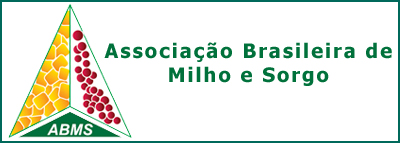PHYSICAL AND TECHNOLOGICAL QUALITY OF CORN KERNELS DURING STORAGE AS A FUNCTION OF PRE-CLEANING
Palavras-chave:
Quality, Impurities, Moisture content, Technological classificationResumo
Maize is the most cultivated and consumed cereal in Brazil, which is the world’s third largest producer of this grain. Estimated losses due to pest attack, especially pest insects and fungi, represent approximately 10% of the total production. The pre-cleaning phase allows the reduction of foreign matters and impurities (IM) present in the grains, which are used as food and shelter for stored grain pests. The aim of this work was to evaluate the effect of pre-cleaning on the physical and technological quality of corn kernels, during bulk storage in a silo-dryer. The grains were harvested with a combine harvester, at a moisture content of around 17% and 0.84% of IM. Part of the grains was submitted to pre-cleaning and subsequently stored in a silo, while the other part was directly stored in a silo-dryer. After pre-cleaning, the grains were sent to the silo-dryer with 0.12% of IM. Drying was carried out by blowing natural air through the grain and the process was completed when the grains reached approximately 12% moisture content. It was concluded that pre-cleaning provided lower hygroscopic equilibrium moisture, reduced the presence of insect damaged grains, and improved the technological classification of grains during storage.
Downloads
Publicado
Como Citar
Edição
Seção
Licença
Autores que publicam nesta revista concordam com os seguintes termos:- Autores mantém os direitos autorais e concedem à revista o direito de primeira publicação, com o trabalho simultaneamente licenciado sob a Creative Commons Attribution License que permitindo o compartilhamento do trabalho com reconhecimento da autoria do trabalho e publicação inicial nesta revista.
- Autores têm autorização para assumir contratos adicionais separadamente, para distribuição não-exclusiva da versão do trabalho publicada nesta revista (ex.: publicar em repositório institucional ou como capítulo de livro), com reconhecimento de autoria e publicação inicial nesta revista.
- Autores têm permissão e são estimulados a publicar e distribuir seu trabalho online (ex.: em repositórios institucionais ou na sua página pessoal) a qualquer ponto antes ou durante o processo editorial, já que isso pode gerar alterações produtivas, bem como aumentar o impacto e a citação do trabalho publicado



